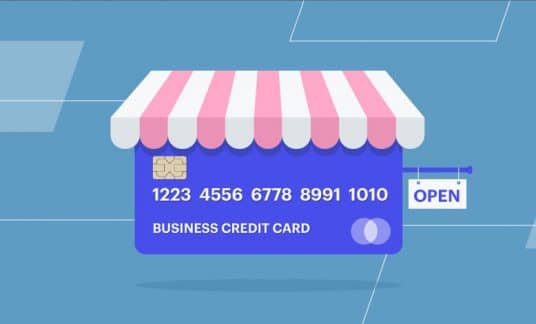If you’re starting or expanding your business, using a credit card can help cover certain expenses.
However, you might wonder which type of credit card you should use — a personal credit card or a business credit card. We’ll explore a business vs. personal card to help you determine whether a business credit card or personal credit offers better value to you as a small business owner.
Business vs. Personal Credit Card: The Differences
While you can use a personal credit card for your business, the Small Business Administration (SBA) points out several advantages to using a business credit card to handle your specific business expenses.
Business credit cards can help keep your business and personal expenses separate. They can also contribute to establishing your business credit identity and profile. They can also offer benefits and rewards oriented toward your business, instead of personal needs.
Business Credit Cards Offer Business-Related Benefits
While business card perks and benefits seem similar to personal credit cards — including travel rewards and points-based rewards — many business credit cards offer business-focused benefits. Some business credit cards offer purchase discounts for office supplies, tech equipment and business-related travel perks.
Others offer a higher level of points or cashback on business expenditures such as marketing and advertising, shipping or business phone services.
Some business credit cards can be linked to your accounts at your financial institution, including a business line of credit. You might also find business travel cards that offer airline miles for your business travel, which are redeemable for future flights, hotel stays and rental cars.
Personal Credit Cards Offer Benefits Geared Toward Individuals
On the surface, business credit cards and personal credit cards seem similar. However, when you read the fine print on personal credit card policies, you’ll see that points, cashback and rewards programs focus more on expenses that individuals or families make.
For example, you might have a personal cashback credit card that offers a higher percentage of cashback on specific retail purchases such as groceries, movie tickets or restaurant meals. Personal credit cards seldom offer specific benefits for business expenses.
Business Credit Cards Have Different Policies and Protections Than Personal Credit Cards
Your personal credit card is offered to you under government consumer protection policies. The Credit CARD Act of 2009 is a federal law that spells out credit card company responsibilities and consumer rights, but it is focused on personal credit cards, not business cards.
Under the Credit CARD Act, credit card issuers have to provide at least 45 days’ notice if they are going to raise the interest rate on your card. Business credit card issuers don’t have the same requirement. As a result, you could see significant changes in your card’s interest rate in the course of a year.
While most business and personal credit cards will report any late payments to credit reporting agencies, some business credit cards report only to business credit reporting agencies. Business credit reporting agencies include Dun & Bradstreet, Experian PLC and Equifax. You might also find that business credit cards lack the protections that personal credit cards offer.
For example, personal credit cards might have identity theft or fraud protection that limits your liability in case of identity theft. Other cards may have purchase protection that will provide you with a refund in case you’ve purchased a defective item.
Some personal credit cards also offer travel insurance benefits. Business travel cards also offer benefits, but these plans can differ, so it’s wise to check the fine print for any business card you select.
Business Credit Cards Can Have Higher Credit Limits
Depending on your business revenue and expenses, you could apply for and receive a business credit card with a significantly higher credit limit than a personal credit card. Experian reported that in the second quarter of 2019 the average credit card limit was $7,478 for consumers with credit scores in the 670-739 range. Business credit card limits can be $10,000, $15,000 or higher with responsible use.
Business credit cards can be similar to business lines of credit, and offer the ability for you to flexibly spend and repay. If you always pay your credit card in full every month, you could also be eligible for significant rewards. Some higher-limit business credit cards offer 5% cashback on business purchases, including office supplies, phone service and cable TV service. Other purchases such as gasoline and restaurants could provide 2% cashback up to annual spending limits.
Employees Can Have Business Credit Cards
When considering a business vs. personal credit card, one major difference is the ability to issue cards to employees. While you can add family members to personal credit cards, business card companies can offer more control and flexibility in adding employees or designating spending limits.
You can issue cards for specific employees and departments, and you can specify spending limits per employee and department. Business credit card companies also usually offer seamless integration with common accounting software, including standalone programs and cloud-based software. 
Business Credit Card’s Benefits For Your Small Business
Many business coaches and experts advise using a business credit card to keep your business expenses separate from your personal expenses. The majority of small business credit cards will use your personal credit score to determine your eligibility, interest rate and credit limit, and they will also report any missed or late payments to both personal and business credit bureaus. However, you might be able to find some business cards that report only to business credit bureaus.
Specific Ways a Business Credit Card Can Help Your Small Business
Convenience: You can use your credit card to take care of daily expenses and also pay for one-time or occasional expenses. You can also use the business credit card for online transactions.
Financial Flexibility: A business credit card will let you escape end-of-week or end-of-month financial pressures, much like a working capital loan. If you need to use the card to cover supplies or pay for services, you can do so on the schedule needed.
Qualifications: You may be able to qualify for a business credit card from a lender who will look at your income and expenses. While many business credit cards use personal credit scores to evaluate your eligibility, some business credit cards will look at your business revenue and expenses over 12 months (and sometimes longer) to make eligibility determinations.
Accounting Benefits: We’ve all probably heard about business owners who keep paper receipts in a shoebox. With today’s intelligent financial accounting and management tools that can move seamlessly from your mobile phone to computers to your credit card statement, you can get a broader, better financial picture of your business using a business credit card. Most, if not all, business credit card companies provide online tools that work seamlessly with common accounting apps.
Business-Oriented Benefits: Some business credit cards offer product discounts, cashback rewards, points-based rewards, and travel rewards geared toward small businesses. You might find a credit card that not only offers rewards for business, it has rewards tailored for your specific business, whether you’re a pet groomer or a personal trainer.
While business credit cards don’t offer every protection available to consumers with personal credit cards, they do offer benefits and perks that can strengthen your business. Some small business rewards credit cards offer generous cashback offers that can help your bottom line at the end of the year, especially if your business expenses match the categories that the card specializes in, whether they are airline miles or office supply store purchases.
Having a business credit card and using it responsibly can help establish your business credit profile. You can use the card to document on-time payments and steady cash flow.











